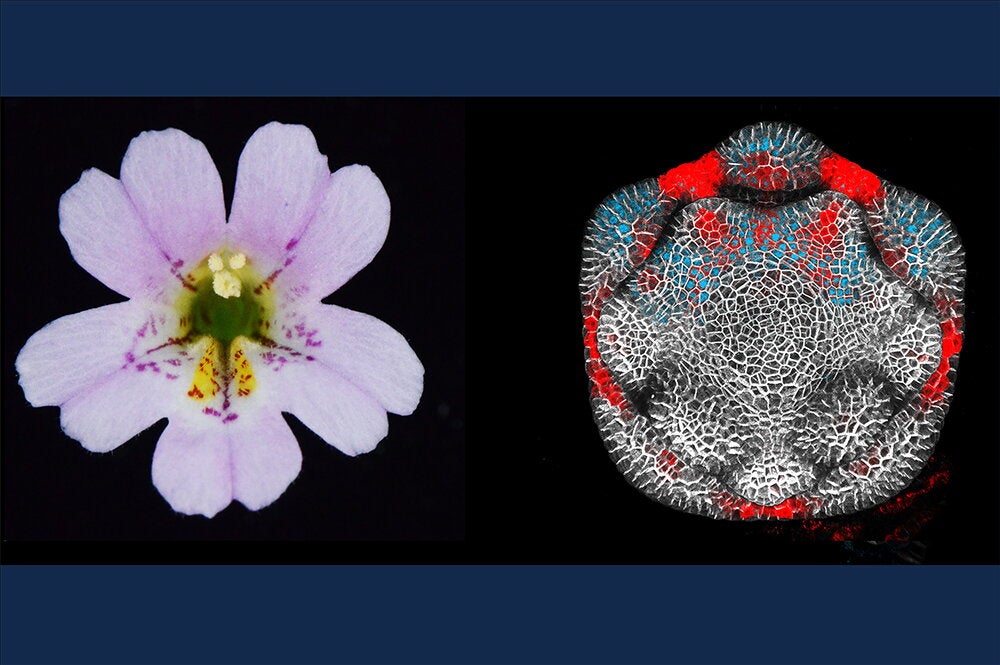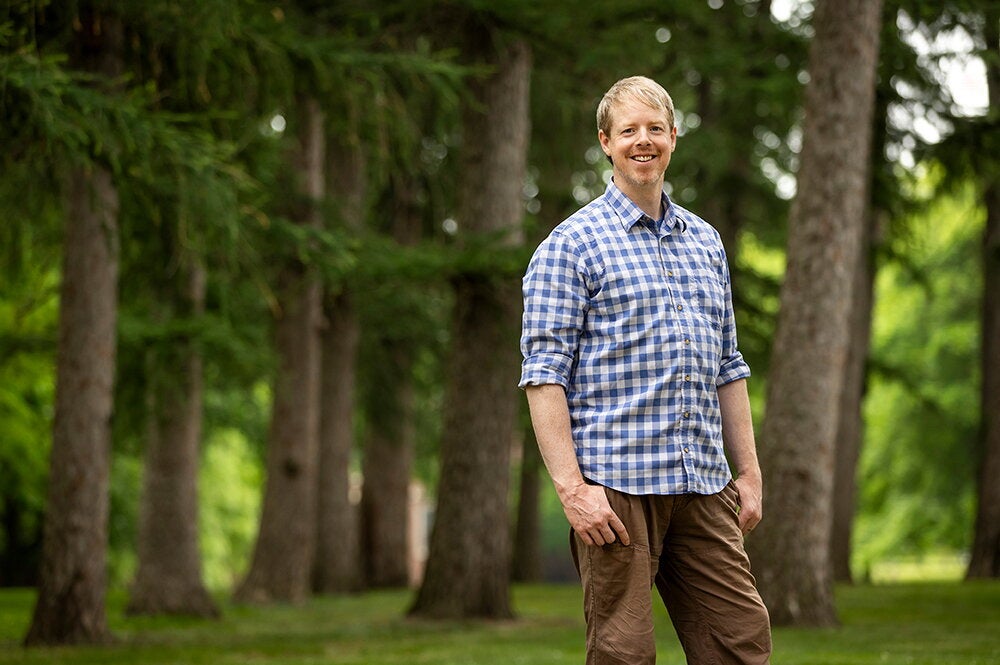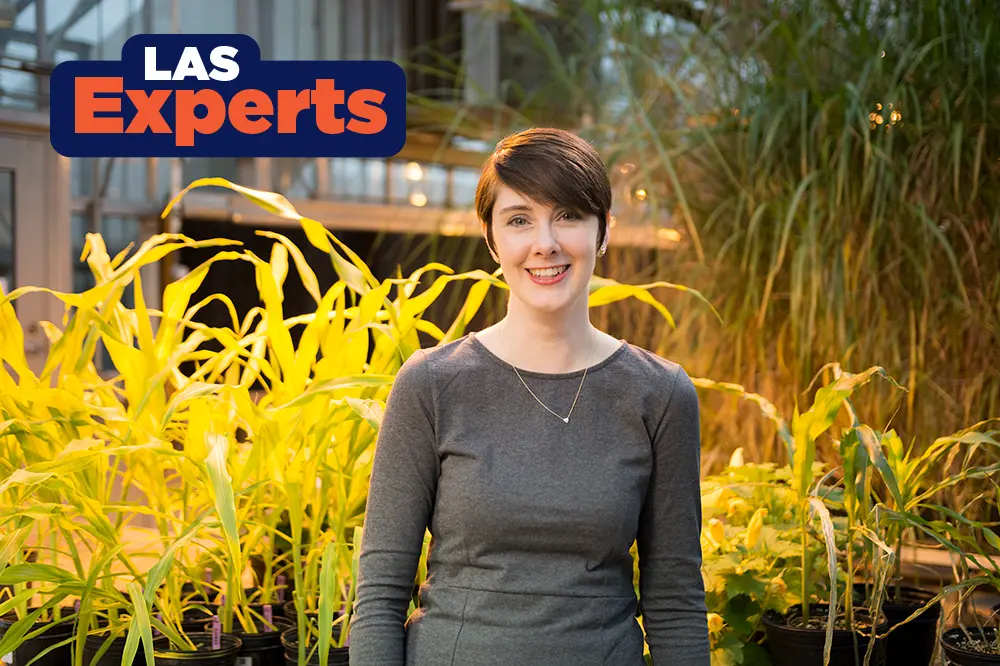
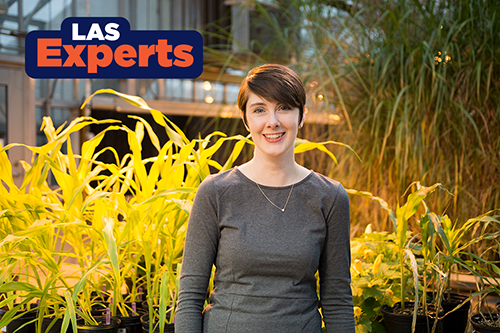
How can we help our crops and plants survive in an increasingly hot and unpredictable environment? Amy Marshall-Colon, a professor of plant biology at the U of I who recently received the Friedrich Wilhelm Bessel Research Award from the Alexander von Humboldt Foundation, thinks that by looking into gene structures, scientists can help plants help themselves.
What is your area of expertise?
I study the molecular mechanisms that contribute to crop resilience to climate change using systems biology and mathematical modeling. I’m really interested in understanding what causes genes to turn on and off, like switches, in response to signals from the environment. If we can figure out that complex switchboard inside of the plant, we might be able to act as operators and leverage their natural mechanisms to help them keep pace with our rapidly changing climate. The Friedrich Wilhelm Bessel Research Award from the Alexander von Humboldt Foundation will support my upcoming sabbatical in Germany, where I will work with the PhenoRob Cluster of Excellence to link molecular data with macro-level phenotypes.
What are you working on now? Why are you passionate about this area of study?
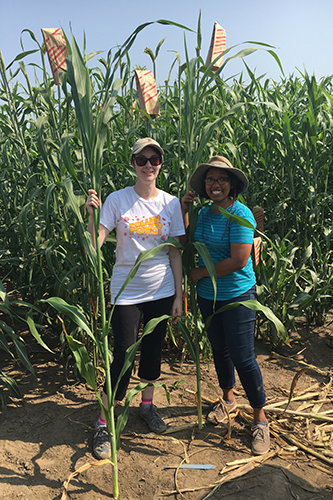
We have a lot of fun projects going on right now in my group. In one project I really like, we dissected out six different cell types from a sorghum stem cross section at two developmental stages and performed transcriptome analysis, which is where you measure the expression of thousands of genes simultaneously. It was amazing to learn how diverse these transcriptomes are across space and time. Two cell types that are right next to each other express different genes that contribute to their unique functions, and those functions can change over time. We’re now learning what factors control these dynamic changes, and using modeling to uncover special features of those regulatory genes that we can use as molecular tools to synthetically express new genes in those cell types. This is part of the Department of Energy funded Center for Advanced Bioenergy and Bioproducts Innovation on campus.
What impact will your work have on your field and the community?
I think it’s too soon to tell what impact my work will have on the field, but most of the projects I work on are collaborative, and I believe that all the small things each of us work on will come together to make a more significant contribution to the field and the community. All of my collaborative projects are aiming to create crop ideotypes, or ideal plants, that can thrive under stressful environments. Some of our discoveries may eventually be translated into crops that growers want to grow, and I hope that they prevent yield loss under future climates.
How has your field changed since your career began?
There has been an astounding increase in experimental and computational tools and technologies, such as RNA-sequencing and high performance computing. Some of things my group are doing today weren’t possible 10 years ago, but the new technologies allow us to collect data at finer resolutions AND have the computing power to build more complex models.
What do you enjoy most about teaching? What advice would you offer to students interested in your field?
My favorite part of teaching is to hear from a student that something I taught them is helping them in their own research. I would advise students interested in my field to get a strong foundation in biology and then learn computation either through self-education or workshops. It’s important for students to learn how to both analyze and interpret their data in a biological context, so you can’t skimp on the biology!
What’s your proudest achievement?
It’s hard to pick one—not because I’m an egomaniac, but because there are different feelings of “proud.” I was so happy when the first graduate student accepted my offer to come to school at UIUC, and proud to tears when she graduated with her PhD. When I got my first grant I called both my PhD and post-doc advisors crying with joy like I had just won the Miss America Pageant. And, when I got tenure, there I was again, in tears, sharing the good news with my dad, my cheerleader, before he passed away. It’s a good career with plenty of highs and lows, and the best part is having good people to share both with.

